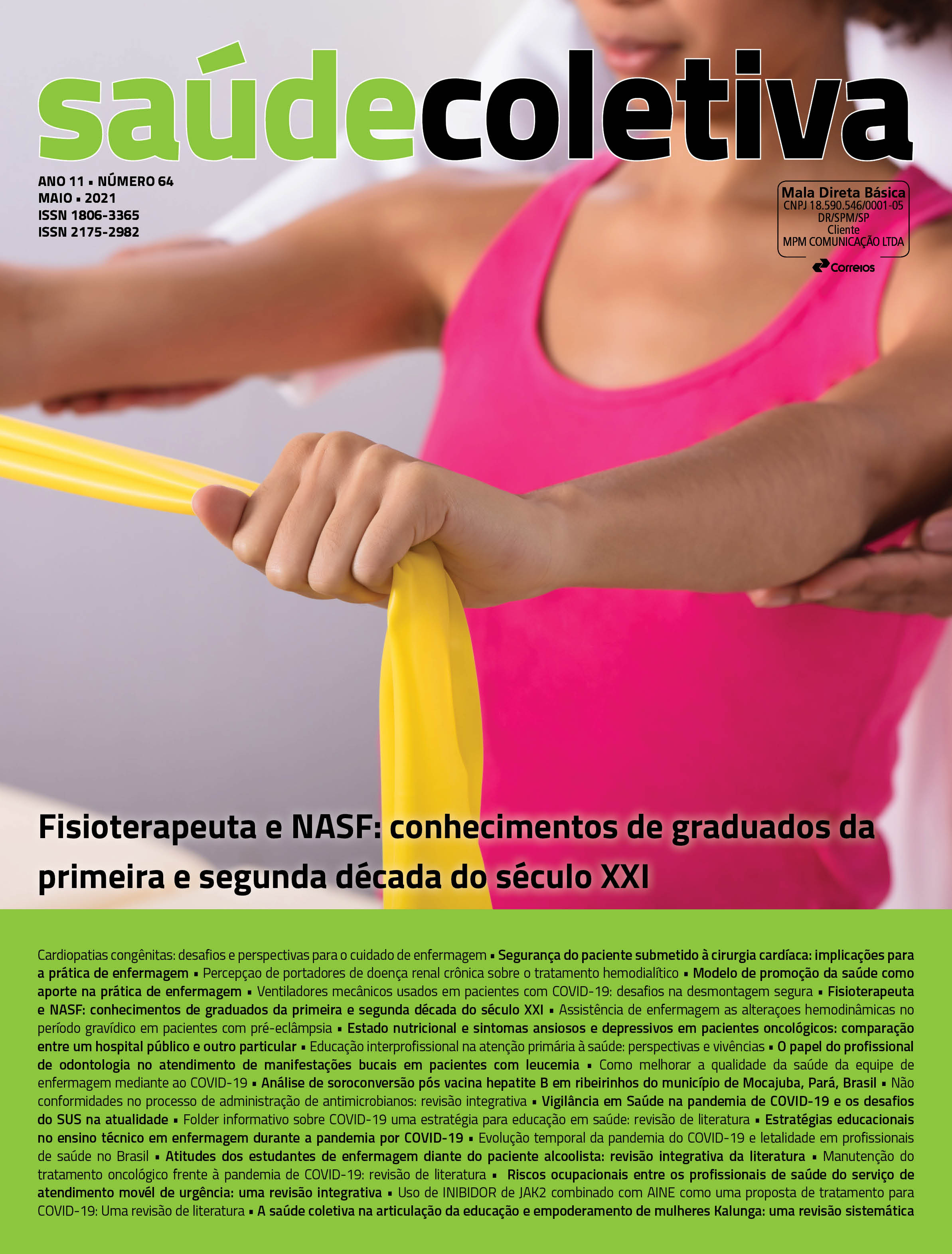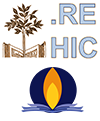Physiotherapy and NASF: knowledge of graduates from the first and second decade of the XXI century
DOI:
https://doi.org/10.36489/saudecoletiva.2021v11i64p5628-5639Keywords:
Physiotherapy, Primary Health Care, Family Health Strategy, KnowledgeAbstract
Objective: To verify the knowledge among professionals trained in the 1st and 2nd decades of the XXI century regarding the physiotherapist's duties in the family health support center. Method: Quantitative, cross-sectional study, comprising 35 physiotherapists from the city of Porto Velho, with active registration, divided into two groups (1st and 2nd decade). The professionals answered a questionnaire with dichotomous questions about the physiotherapist's performance through the Google Forms platform. Results: There was no statistical significance between the groups, however, in a more synthetic discussion in a descriptive form of percentages due to the differences in samples in the groups, facilitating the risk of bias, it was found that the 2nd decade group has more knowledge in relation to the other group. Conclusion: During academic training there are disciplines aimed at working in primary care, but the focus on the tertiary area, allows a large part of professionals to link their work to the rehabilitation role.







